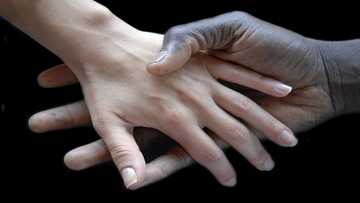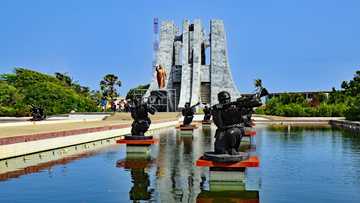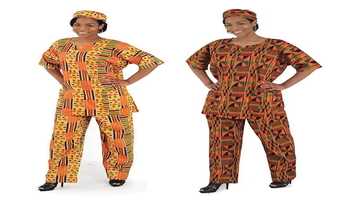Interesting facts about Ghana that you never knew
The republic of Ghana is home to some of the world’s phenomenal personalities including actors and the very popular Kofi Annan who until 2006 served as the United Nations Secretary General. Ghana is one country with rich historical and cultural diversity which makes the country fun filled and hospitable too. This not forgetting the awesome topography, landscape, natural resource and scenery Ghana enjoy. The economy is well to do, people of diverse background but friendly, political stability and traditions is yet another notable thing. For those who love the country I am sure you have gone at lengths to find out facts about Ghana.
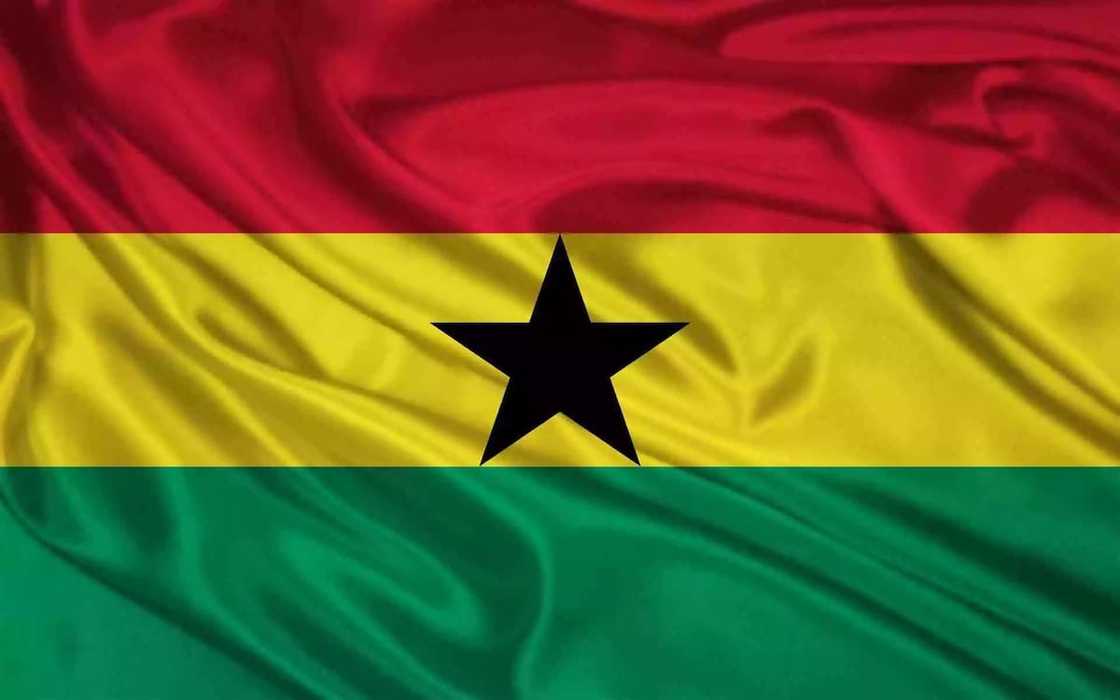
Facts about Ghana are both interesting, some will take you aback, others are hilarious yet some are completely cool. This just goes in explaining why Ghana as a country is unique and set apart from the rest of the West African countries. Before I highlight the interesting facts about Ghana allow me to briefly explain the meaning. Ghana is a word in the Soninke language which means a ‘warrior king’. A beautiful meaning there is there! Indeed Ghana has so much in its history, culture, traditions, people, traditions, food geography, and economy. Here are some cool facts about Ghana;
Facts about the Ghana’s history
Ghana is one of those countries that some truths walk with it. It is the kind that whenever something relatable is mention, you can only thing of the republic of Ghana. Check out these interesting facts about Ghana history which are also facts about the Ghana empire:
- Ghana was colonized by the British government although the Portuguese had expressed vested interests in the country due to gold deposits. This caused an uprising between the two opponents but the Briton superseded the Portuguese.
- At the time the country was ruled in a kingdom structure.
- The Britons brought much oppression to the people taking up their land, coercing them into forced labor, limiting their freedom and even blocking their right of expression.
- A group of the Ghanaian elites in their wisdom saw it fit to liberate the country from the hands of the colonialists.
- These educated Ghanaians were lead by Kwame Nkrumah is seeking independence just after the World War II.
- In 1945 during a Pan African meeting in Manchester, Kwame Nkrumah expressed his desire to have his country gain independence from both the humanitarian and ethical aspect.
- The subsequent year, 1946, Ghana had its first constitution.
- The struggle for liberation began with the notion that colonization was a form of oppression and should be stopped as soon as possible.
- In 1957, Ghana gained independence and Kwame Nkrumah rose as the first President of the Republic of Ghana.
- Ghana is then the first country in the sub-Saharan West Africa to gain independence.
- It has since then enjoyed political instability and economic growth.
READ ALSO: How to market a product online and make more money in Ghana
Facts about Ghana
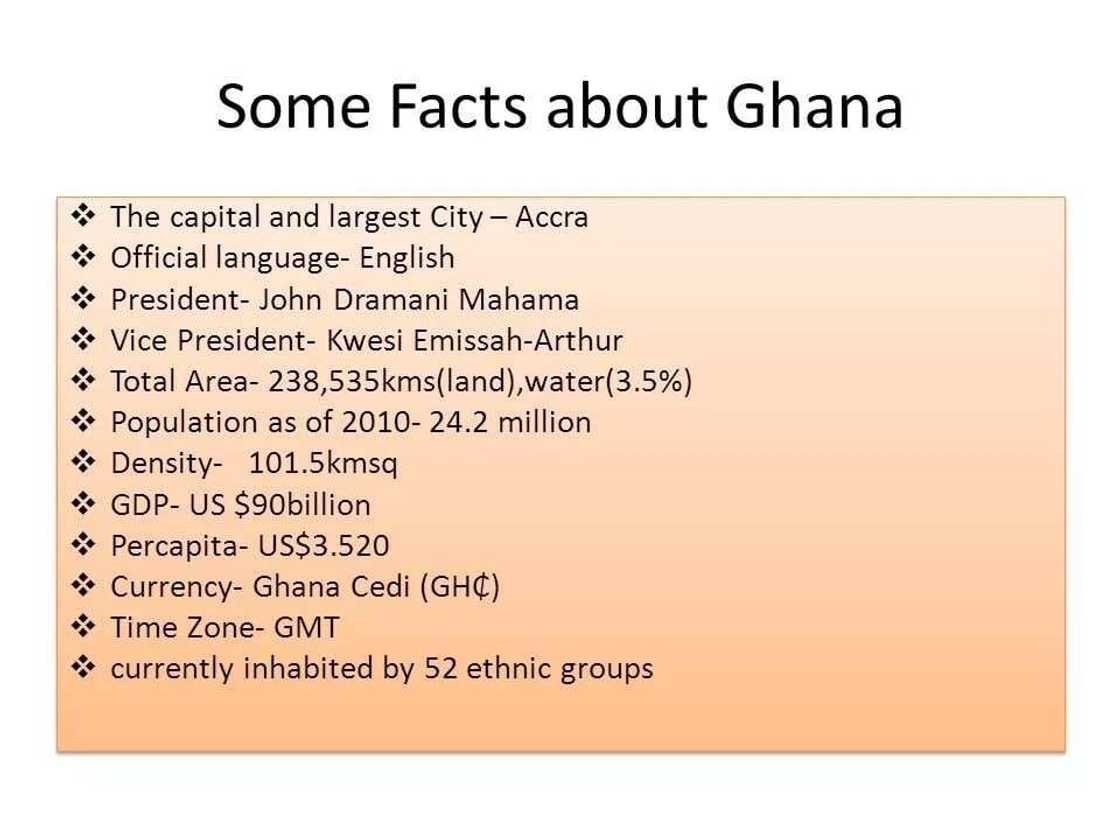
If you are to say that you know about the Republic of Ghana then you need to point out the following facts to prove that indeed you know the country.
- Ghana lies between the Gulf of Guinea and the Atlantic Ocean.
- It borders Burkina Faso to the North, Atlantic Ocean to the South, Côte d’Ivoire to the West and Togo to the East.
- It was originally known as Gold Coast since Gold could be collected at the shores.
- English is the official language although the Akan, Ewe, Moshi-Dagomba and Ga languages are widespread and commonly used as the language for communication.
- It has a total area of 238, 533 kilometer squares which can be expressed in other parameters as 92,098 miles squares.
- It has an estimated population of about 27.5 million people with a growth rate of 2.2% as per the end of year 2017 index.
- There are about 40 native languages in Ghana.
- Ghana official currency is cedi which means a cowry shell. This name was adopted since the latter was used as the means of exchange.
- According to Global Peace Index, Ghana is the most peaceful country in Africa.
- Ghana is agriculturally rich famous for cocoa farming.
- Natural scenery and geographical formation is worth site seeing; it has six national parks with spectacular animal and plant species alongside other deluxe tourist destinations.
- Ghana boasts about being the home to the world’s largest manmade lake, Lake Volta which occupies 3.6% of the Ghanaian soil, 3,283 square miles.
- It is the second world great cocoa producer after Ivory Coast.
- It was a British colony which gained independence in 1957 through peaceful negotiations.
Facts about the Ghana Empire
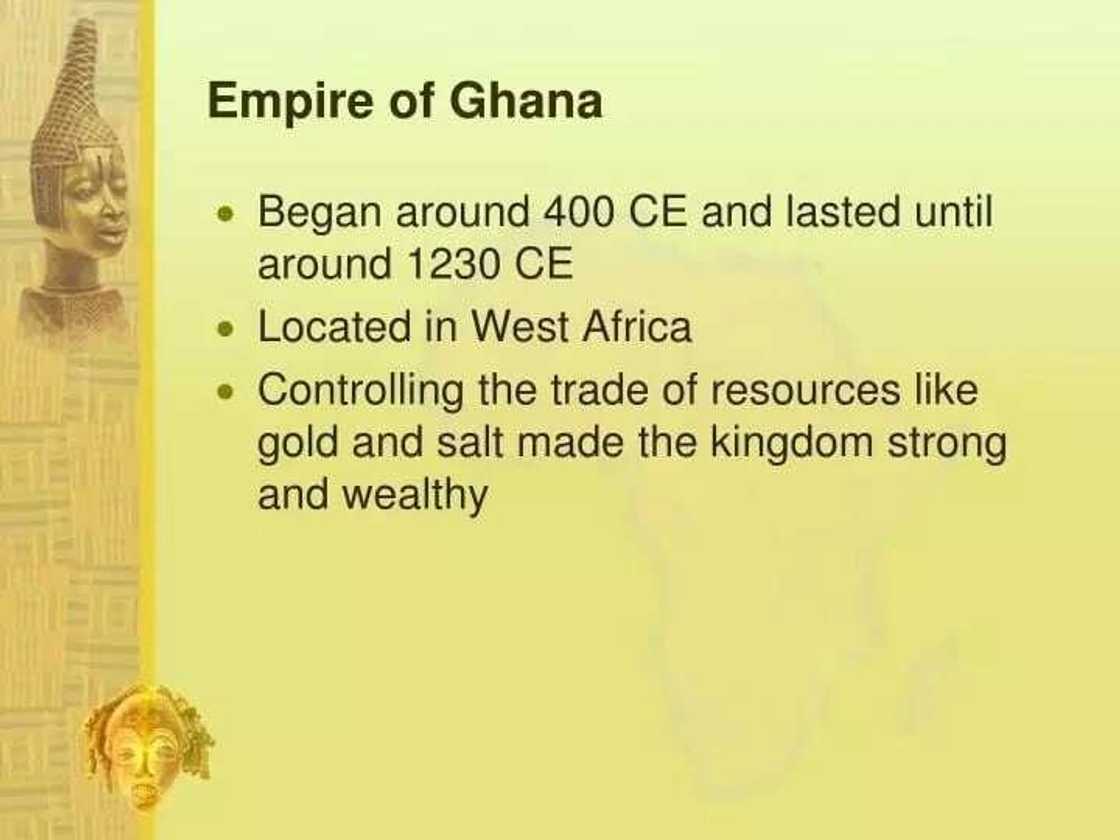
These are the primary and factual characteristics of the Ghana Empire.
- The Ghana Empire was established between the 9th and 13th centuries.
- It was based on trade in salt and gold.
- The market grew over time and the British merchants dubbed it the Gold Coast.
- As a result, people had to settle around the market and this later came to be the Ghana Empire.
- Today, Ghana has the largest market in West Africa where you can find everything from crafts, jewelry, clothing, food just to mention but a few products.
- The market is called Kejetia and it in the Ashanti region in Kumasi to be precise.
- This is where the Ghana Empire used to be, a region under hot sun.
- The country name, Ghana was given by the medieval empire of West Africa though at first was Wagadugu before it was renamed.
READ ALSO: How to make spring rolls in Ghana
Facts about Ghana – People’s culture and tradition
Ghana would not be a notable country it is today without its people. Here are the cool facts about Ghana in relation to demographic practices and structure.
- Ghana has a population of 27.5 million people.
- English is the accepted and official language although most people speak in more than one language including their very own native language.
- Most Ghanaians are either Christians or Muslims although there is a few other who follow other religions.
- The Ghanaian people are from different and diverse ethnic backgrounds. As a matter of fact, Ghana is home to well over 40 tribes.
- Their cultural practices and belief vary from one community to the next although the traditional teaching and shape all communities to be humanitarian and hospitable.
- Culture has given people a sense of belonging and identity hence becoming a unifier.
- The social class stratification; royal, commoners and slaves are still in practice today although slavery is not prominent.
- The culture call for people to be kind, caring and hospitable to one another. Good virtues is an over emphasized fact in the traditional set up.
Allow me to point out some other facts about Ghana in relation to culture and tradition that can be stemmed down. There is a dimension I would like to take; the weird fact about Ghana;
Weird facts about Ghana
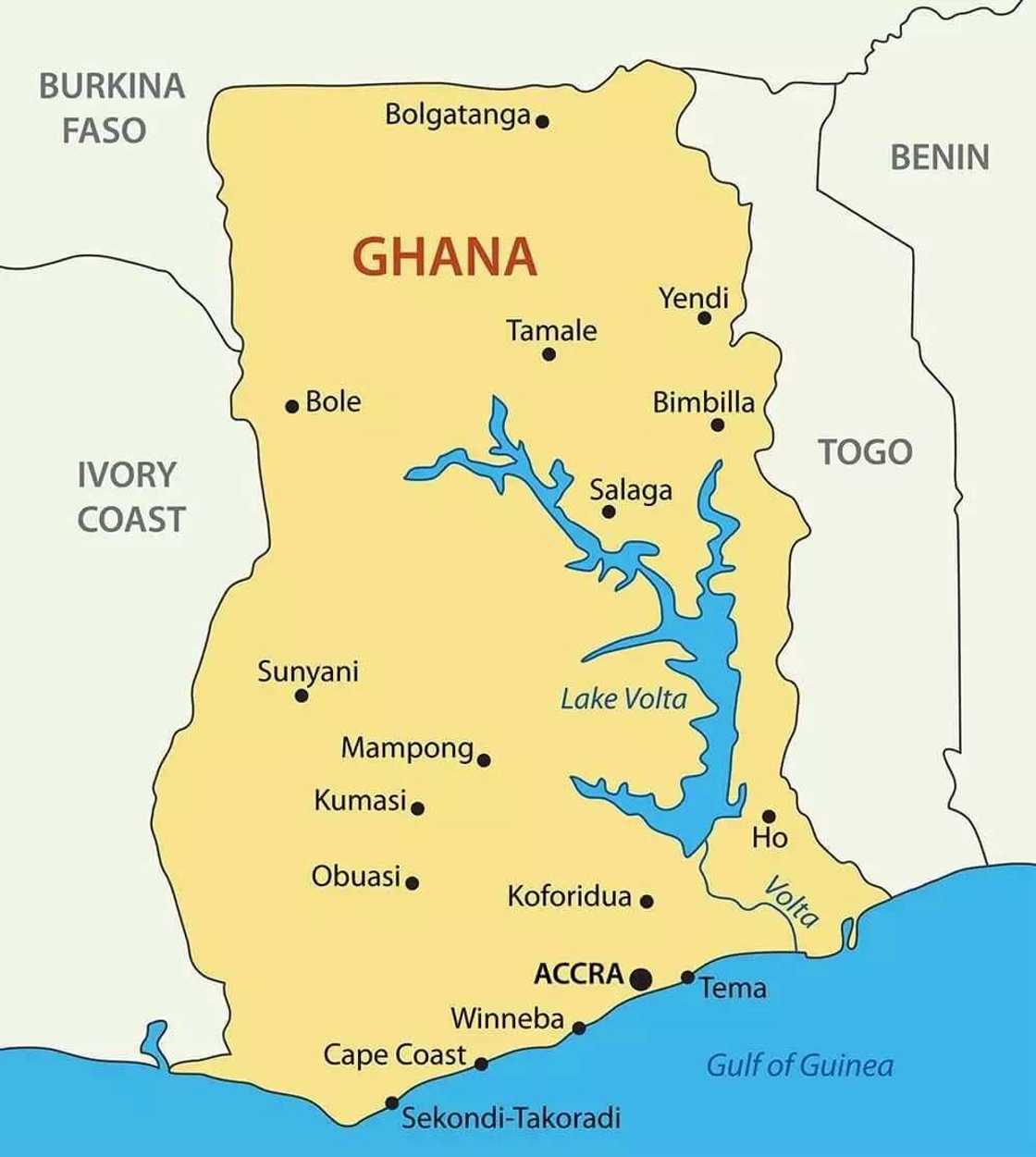
Ghana has some practice that would appear normal to people yet some are far off unusual yet beautifully crafted that makes the country unique. Some could be hilarious and often surprising but they have been there for ages and continue being passed on to generation with an exemption of some that are diminishing or have become extinct.
- Wife inheritance was a traditional practice but still is in full application today. When a woman id widowed, the living brother to the deceased is expected to take care of the latter as the husband assuming all responsibilities.
- Polygamy is allowed. People have no problem with a man marrying many wives so long as her can sufficiently provide for all their needs. Nonetheless, due to the responsibility that comes with it, polygamy was often done by the rich and wealth or powerful members of the society.
- The Akan people belief in ancestral intercession and hence take up gods, goddesses and spirits as their sovereign beings. Most of these people who place heavy emphasis and significance on ancestors are from the Northern region. The Akan community is about 67.1% of the general population.
- There are age ceremonies for girls done either before they are born or before marriage according to the cultural practices of each tribe.
- Harvesting season is a time to hold festivities. This is a traditional practice still in use today.
However, in as much as these weird facts about Ghana are still practiced at this day and age. Christianity has reshaped them makes some go into extinction or they have been minimized rationally. For instance, as I have mentioned above, wife inheritance and polygamy is part of the norms and beliefs. However, Christianity has brought another angle to it through teachings enlightening people or why it is wrong or unethical and why it should be stopped based on the Christian teachings.
READ ALSO: List of best hospitals in Ghana and their locations
Facts about Ghana – geography and natural heritage
Although Ghana is a beautiful country thanks to modernization through civilization, there is some nature providence bits that can make you fall in love with the country. Here are the nature’s facts about Ghana;
- Kumasi National Park – this is a dense tropical forest, a home to many animal and plants species. The main unique thing about this natural habitat is how it has been built to have a 350 meters stretch canopy walkway that is 30 meters above the ground to give you awesome scenery. Besides there are campsites among other additions a game park has.
- Mole National Park- this is yet another wildlife preservation center in Ghana. Therein are lions, leopards, buffalo, elephants, warthogs and antelopes among other animal. Bird species are over 250 which means it is this park support key creatures in the eco-system.
- Kumasi- it is the Ashanti Kingdom’s former capital and a big market in close proximity to many parts of the country. It has about 1.5 million people who are doing business; a good destination even tourist visit occasionally. It is very busy and squeezed but nothing will you not find therein.
READ ALSO: Fresh Ghana-US military deal signed by NDC pops up
Facts about cocoa in Ghana
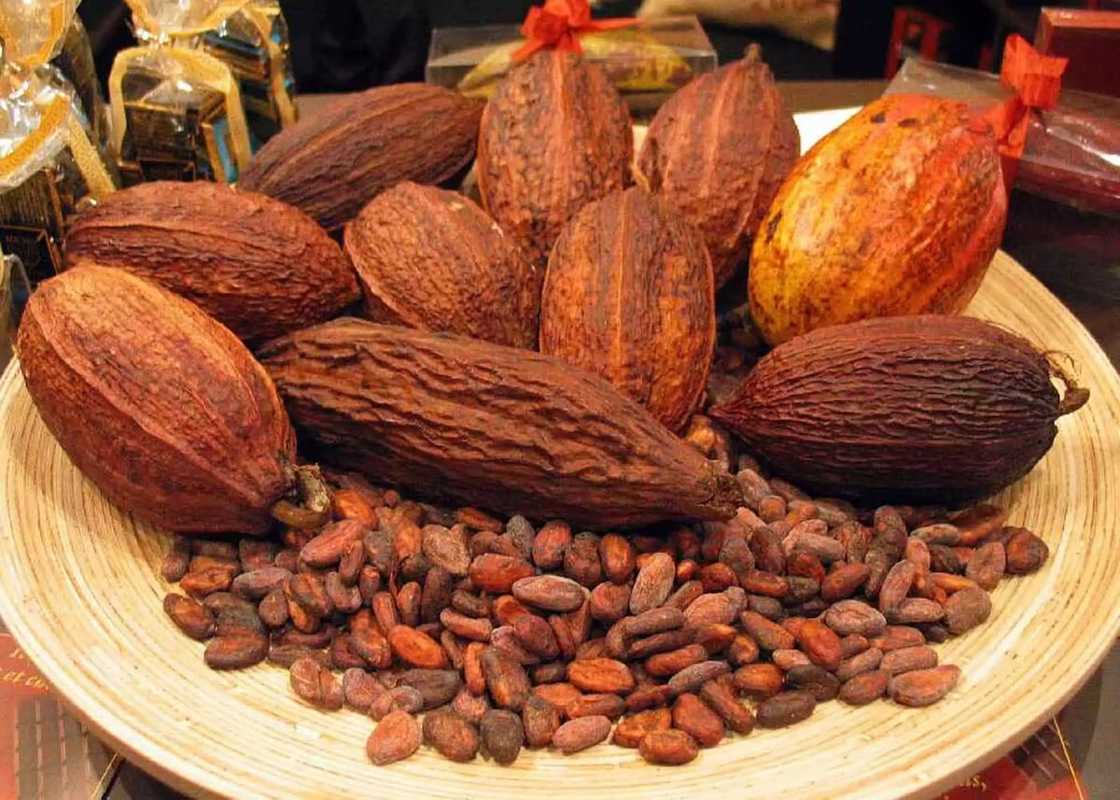
I had mentioned here above that Ghana is an arable land. This means farmer cultivate on their land and get produce which can either be for subsistence or commercial use. Here are some basic facts about cocoa in Ghana.
- Cocoa is the main cash crop in Ghana and also the major agricultural export.
- Cocoa farming is favored by cool moist climate and hence commonly done in forested areas.
- Cultivation is done around the Volta region, Ashanti region, Brong Ahofo region, central, eastern and western regions of Ghana which experience rainfall of about 1000 to 15000 millimeter per year.
- The Ghana Cocoa Board commonly known as the Cocobod does all the management of cocoa farmers up to ensuring they get reasonable compensation for their farm efforts. In fact it has solicited for subsidization of farming equipment, pesticides, fungicides, fertilizers and even high quality seeds.
- All cocoa produce should be marketed and subsequently sold through the Ghana Cocoa Board although some is maliciously smuggled.
- Cocoa seed have different production times. Some can produce for five years other 10 to 15 years subject to the quality of cocoa bean - seed.
- Cocoa farming success is determined by the type of seeds, farm inputs, land, labor, farming equipment such as the spraying machine, rainfall and the farmer themselves.
- Cocoa is exported globally to other continents such as America, Asia and Europe.
Funny facts about Ghana
Here are some fun facts about Ghana that gives more reasons the more why I should always remain a Ghanaian;
- Kids spend most of their off school time interacting, dancing and playing games. This has been passed from generation to the next and seems children love this practice.
- Women are to dress in brightly colored attire commonly made of Kente fabric. This is to allow men spot them from far besides it forms part of their beauty, interesting!
- Men groom in dark attire which is free flowing and not trousers in the contemporary world to denote the warrior king notion.
These funny facts about Ghana application has been affected by modernization but is ceremoniously in practice even today.
READ ALSO: Top 10 cheapest universities in Ghana
Source: YEN.com.gh


